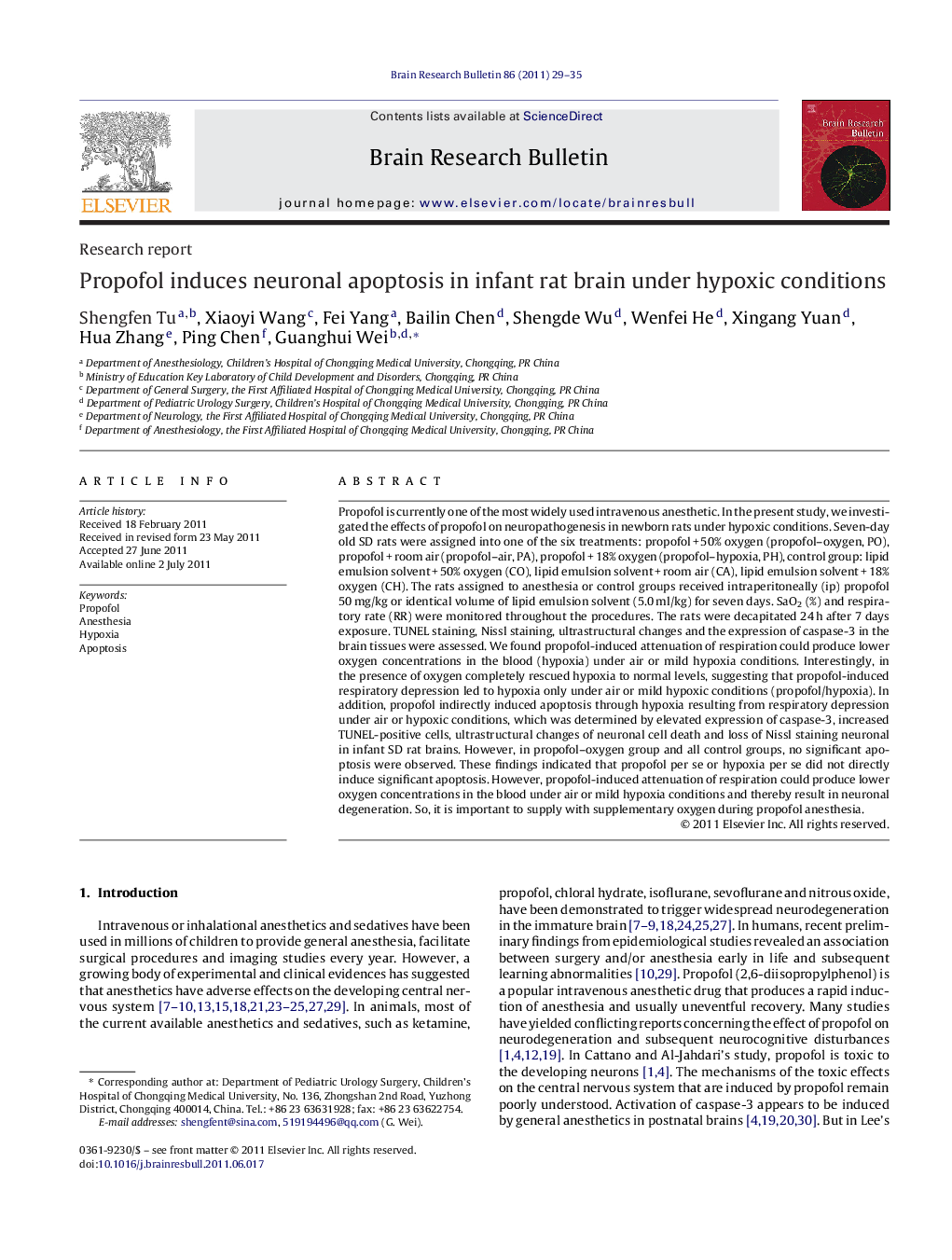| Article ID | Journal | Published Year | Pages | File Type |
|---|---|---|---|---|
| 6262170 | Brain Research Bulletin | 2011 | 7 Pages |
Propofol is currently one of the most widely used intravenous anesthetic. In the present study, we investigated the effects of propofol on neuropathogenesis in newborn rats under hypoxic conditions. Seven-day old SD rats were assigned into one of the six treatments: propofol + 50% oxygen (propofol-oxygen, PO), propofol + room air (propofol-air, PA), propofol + 18% oxygen (propofol-hypoxia, PH), control group: lipid emulsion solvent + 50% oxygen (CO), lipid emulsion solvent + room air (CA), lipid emulsion solvent + 18% oxygen (CH). The rats assigned to anesthesia or control groups received intraperitoneally (ip) propofol 50 mg/kg or identical volume of lipid emulsion solvent (5.0 ml/kg) for seven days. SaO2 (%) and respiratory rate (RR) were monitored throughout the procedures. The rats were decapitated 24 h after 7 days exposure. TUNEL staining, Nissl staining, ultrastructural changes and the expression of caspase-3 in the brain tissues were assessed. We found propofol-induced attenuation of respiration could produce lower oxygen concentrations in the blood (hypoxia) under air or mild hypoxia conditions. Interestingly, in the presence of oxygen completely rescued hypoxia to normal levels, suggesting that propofol-induced respiratory depression led to hypoxia only under air or mild hypoxic conditions (propofol/hypoxia). In addition, propofol indirectly induced apoptosis through hypoxia resulting from respiratory depression under air or hypoxic conditions, which was determined by elevated expression of caspase-3, increased TUNEL-positive cells, ultrastructural changes of neuronal cell death and loss of Nissl staining neuronal in infant SD rat brains. However, in propofol-oxygen group and all control groups, no significant apoptosis were observed. These findings indicated that propofol per se or hypoxia per se did not directly induce significant apoptosis. However, propofol-induced attenuation of respiration could produce lower oxygen concentrations in the blood under air or mild hypoxia conditions and thereby result in neuronal degeneration. So, it is important to supply with supplementary oxygen during propofol anesthesia.
⺠Propofol-induced attenuation of respiration could produce lower oxygen concentrations in the blood (hypoxia) under air or mild hypoxia conditions. ⺠Propofol combination with hypoxia induces neuronal apoptosis. ⺠It is important to supply with supplementary oxygen during propofol anesthesia.
